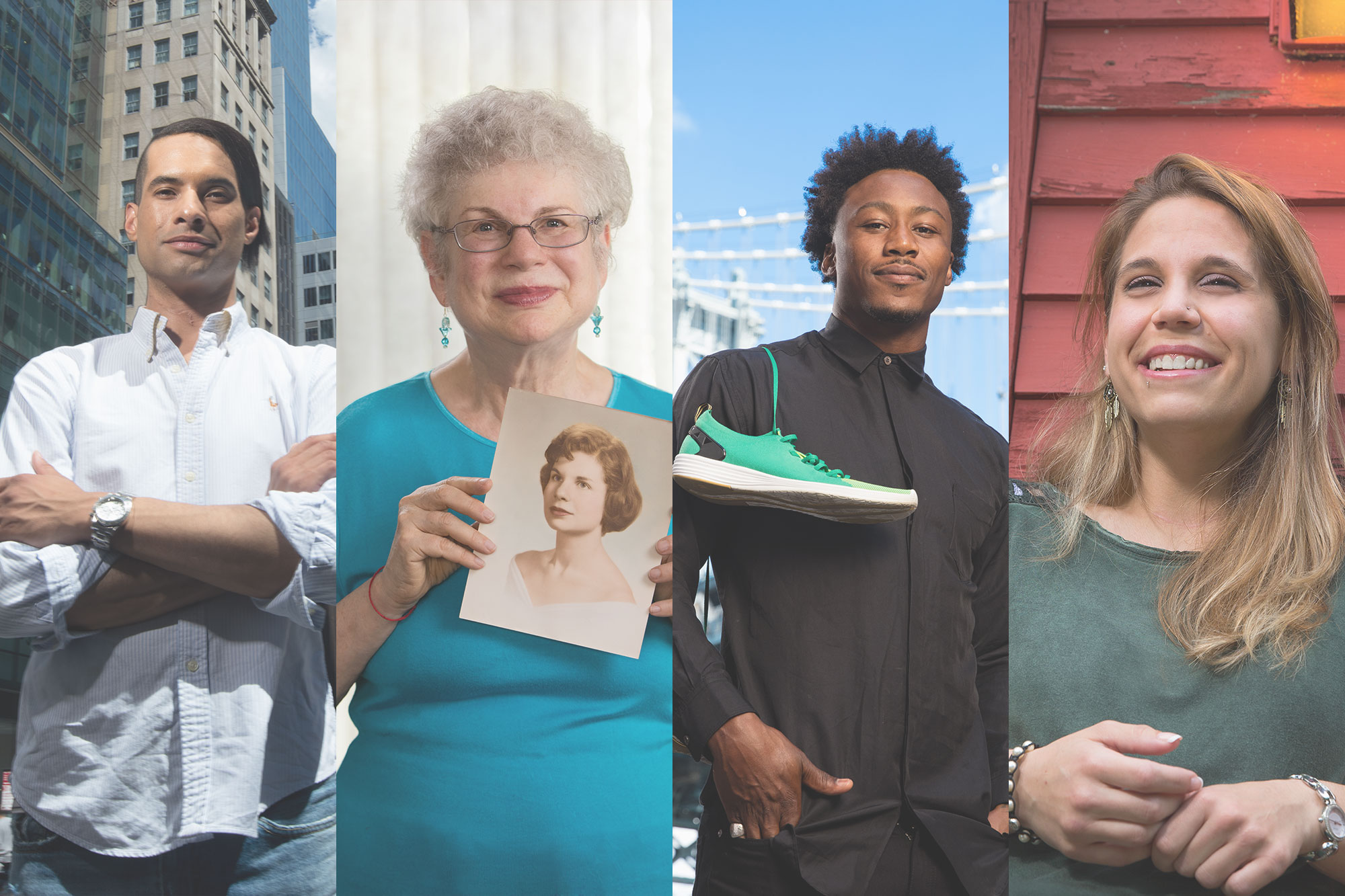Acceptance is part of being able to manage a chronic mental health condition and embracing that identity
Caitlin thinks a lot about anniversaries:
- Being diagnosed with Crohn’s disease at age 11
- Each year, the Boston Marathon in April brings floods of memories of the spring break they spent in the hospital for depression when they were 17
- Their first bout with psychosis that occurred when they were 28
The year they turned 30 was significant, too.
I got my diagnosis of bipolar disorder for my 30th birthday present in 2018.
Caitlin had previously been diagnosed and treated for depression in their teens and twenties.
Depression was isolation, withdrawal, and hopelessness. I experienced suicidal ideation. It was like I was wearing a mask, just going through the motions at school so no one could tell something was wrong. I didn’t want to be a burden.
By the time Caitlin was in their twenties, they would go entire nights without sleep. Instead of feeling tired, they would feel wired and on edge. Their brain was in overdrive and thoughts would race too fast to make sense. Whenever Caitlin tried to speak, it would be a disorganized word salad. Caitlin felt trapped by terrifying delusions that the world had ended. They believe the steroids they took to manage a Crohn’s flare-up triggered their first of several manic episodes and four hospitalizations.
The diagnosis of bipolar disorder when they were 30 led to a different medication regimen that stabilized Caitlin’s moods.
The updated diagnosis was a present to me because I haven’t had a mania episode since. I now had an answer that led to a path I could actually follow—not this loop, where after six or nine months, I would be back in the hospital.
It has been five years since Caitlin has been hospitalized. They have not missed school or work since the updated diagnosis. In addition to medication, they manage their condition with individual therapy, group therapy, and a peer support group. Caitlin’s friends and family are supportive of Caitlin’s mental health challenges, but Caitlin wonders how much to share in different circles.
I never feel completely comfortable in any environment. I’m not risking my job or risking people’s perception of me turning negative. It’s hard not to feel like your authentic self in jobs and in society.
I have this worry that if I were to disclose at work, for instance, I would not be considered for a promotion, or I’d be given a hard time if I had to take sick leave.
In addition to fearing mental health stigma, Caitlin feels stigma as a member of the LGBTQ+ community.
This climate we’re in right now, it’s really bad out there. A lot of states are trying to legislate people’s identities. Being part of the queer community, I’m very aware of—and sensitive to—the discrimination and hate that many of us within the community face.
Caitlin experiences self-stigma when they don’t have the bandwidth to advocate more actively for the causes they believe in.
With everything the news throws at us, I have to protect my mental health. I try to make informed choices when I am voting, but I am not active in causes or campaigns. I just get too overwhelmed, and it feels like I’m not doing enough.
Caitlin continues to consider the layers of their own identity and how much of it they feel comfortable sharing with others.
Acceptance is part of being able to manage a chronic mental health condition and embracing that identity.
They reject the concept of self-segmentation.
You don’t have to live within different communities: the mentally ill, disabled, or the queer community. I feel held back by the way I’m not treating my bipolar disorder the same. I want to embrace bipolar disorder as an identity and not hide that part of myself.
They strive toward change.
It could get to a point where enough time has passed that I don’t even care about my traumatic hospital experiences and I’m just comfortable putting them as an identity on the list of things that I am. Because as each anniversary comes, I’m like, ‘OK, I can celebrate it now.’

